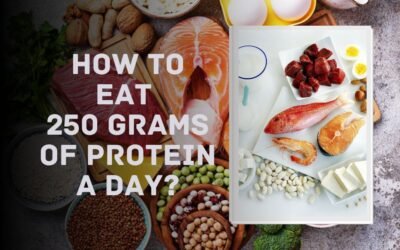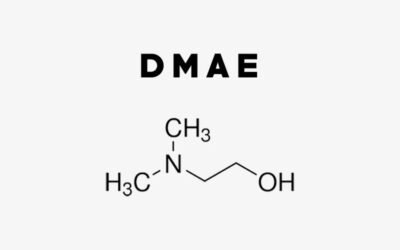Here’s Quick Guide on How to Gain Muscle for Hardgainers
Hardgainers face challenges when attempting to increase muscle mass. Hardgainers need help in gaining weight, particularly in the context of muscle mass, despite their diligent attempts. However, worrying about individuals with difficulty gaining muscle mass is unnecessary. Hence, this article aims to answer how to gain muscle for hardgainers using effective and efficient muscle building.

This study seeks to examine specific tips, strategies, and principles designed to address the particular requirements of individuals classified as hard gainers. Similarly, individuals can enhance their physical appearance and unleash their inherent capabilities by demonstrating commitment, maintaining regularity, and adopting an appropriate methodology.
Let’s Understand What’s Hardgainers
Before discussing muscle-building strategies, it is essential to comprehend the distinctive attributes of hard gainers. Put simply, these individuals generally possess a high metabolic rate, resulting in rapid calorie expenditure. As a result, individuals may need help to consume sufficient calories to achieve the caloric surplus required for muscle growth.
Furthermore, hard gainers typically possess smaller skeletal frames and exhibit a reduced proportion of adipose tissue. These factors and their metabolic rate contribute to their weight gain challenge. Nevertheless, individuals classified as hard gainers can still achieve muscle growth by adopting a customized strategy. Also, the muscle mass obtained by hardgainers is more defined and aesthetically appealing.
Here’s How Hardgainers Can Gain Muscle Mass
Are you among those who’re questioning how to gain muscle for hardgainers especially? Don’t worry simply go below tips and have your query answered:
Prioritize Compound Movements
Compound exercises should be the central focus of a muscle-building training routine. It involves activating multiple muscle groups concurrently, facilitating the development of overall strength and muscle mass. Practical compound exercises for individuals with difficulty in gaining muscle mass include:
- Squats: Targets quadriceps, hamstrings, glutes, & core.
- Deadlifts: Work your hamstrings, glutes, lower back, and traps.
- Bench Press: Engages chest, shoulders, & triceps.
- Pull-Ups/Chin-Ups: Target your back, biceps, and shoulders.
- Overhead Press: Work your shoulders, triceps, and upper chest.
These exercises have the dual effect of promoting muscle growth and stimulating the secretion of growth hormones, thereby facilitating the process of muscle building.
Adjust Your Training Volume and Frequency
Hardgainers should exercise caution regarding excessive training volume and frequency due to the potential for overtraining and subsequent inhibition of muscle growth. Instead, prioritize a well-rounded approach incorporating adequate rest periods between exercise sessions. Engaging in 3-4 weight training sessions per week is recommended, including rest or active recovery days in between.
To avoid detrimental effects on muscle growth, limiting workout sessions to 45-60 minutes is advisable to prevent excessive cortisol production. Providing adequate recovery time for muscles to facilitate their development and enhance strength between exercise sessions is crucial.
Increase Caloric Intake
Hardgainers, due to their elevated metabolic rates, frequently encounter difficulties in consuming sufficient calories to facilitate muscle growth. To address this issue, one must augment one’s caloric intake by consuming nutrient-rich foods. Incorporate complex carbohydrates, lean proteins, healthy fats, and a diverse range of fruits and vegetables into your dietary intake.
Monitor your daily caloric consumption to maintain a consistent surplus of calories. Utilize tools like macronutrient calculators for precise tracking of daily calorie intake. Also, gradually increase your caloric information until you observe constant weight gain.
Consume Sufficient Protein
Protein is essential for hard gainers as it is the fundamental component for muscle development. The recommended daily protein intake is 1.2 to 1.5 grams per pound of body weight. Incorporate protein-rich foods, such as chicken, turkey, lean beef, fish, eggs, dairy products, legumes, and tofu, into your dietary intake.
By evenly distributing protein intake throughout the day, you can have benefits by providing a consistent supply of amino acids for muscle repair and growth.
Implement Progressive Overload
Progressive overload is a crucial principle in the context of muscle development. Progressive overload is a training principle that systematically increases the intensity or load on the muscles to stimulate adaptation and muscle growth. Hardgainers should consistently progress their workouts by increasing their weight, repetitions, or power.
Maintain a training log to monitor progress and make informed decisions regarding the timing and manner of workload increments. This systematic approach will facilitate the ongoing stimulation and growth of your muscles.
Get Enough Rest and Sleep
Rest and sleep play vital roles in muscle recovery and growth. During sleep, the body secretes growth hormones, aiding muscle repair and adaptation. Obtaining 6-8 hours of high-quality sleep per night is recommended to maximize muscle-building endeavors.
Furthermore, it is essential to incorporate rest days into your exercise regimen. Overtraining can result in fatigue, muscle catabolism, risk of injury, and impaired performance. It is necessary to provide your body with sufficient recovery time to enhance its strength and resilience.
Stay Hydrated
Water is essential for various physiological processes in the body, such as the transportation of nutrients, digestion, and body temperature regulation. Proper hydration is crucial for individuals with difficulty gaining muscle mass. Dehydration negatively affects exercise performance and muscle recovery.
Consuming a bare minimum of eight 8-ounce glasses of water daily is recommended, with increased intake during hot weather or intense physical activity.
Consider Supplementation
Although a well-balanced diet generally supplies sufficient nutrients, confident individuals who struggle to gain weight may find it advantageous to use supplements to address potential deficiencies. Add supplements that are used for muscle building, like:
- Whey protein: Convenient source of high-quality protein.
- Creatine: Helps increasing strength and muscle mass.
- Branched-chain amino acids (BCAAs): Support muscle recovery and reduce muscle breakdown.
- Omega-3 fatty acids: Help reduce and control inflammation helping in supporting overall health.
It is advisable to seek guidance from a healthcare professional before integrating supplements into your routine to ascertain their safety and appropriateness for your requirements.
Stay Consistent and Patient
Muscle development, particularly for individuals with difficulty gaining muscle mass, necessitates a consistent and patient approach over an extended period. Maintain dedication to your training and nutrition regimen while acknowledging that desired outcomes may not be immediate. Recognizing and commemorating minor achievements during one’s journey while focusing on the advancements being made is crucial.
10 Common Reasons Why Hardgainers Can’t Gain Weight or Build Muscle
Hardgainers often struggle to gain weight and build muscle due to various factors. A comprehensive understanding of these challenges enables individuals with difficulty gaining muscle mass to develop effective strategies for overcoming them. Due to several key factors, hard gainers face challenges in gaining weight and building muscle.
Fast Metabolism
Hardgainers often possess an inherently rapid metabolic rate. This implies that individuals with a high metabolic rate face difficulties consuming sufficient calories to achieve a caloric surplus necessary for weight gain. The rest is crucial as it supplies the additional energy to facilitate muscle growth.
High Energy Expenditure
Hardgainers often engage in extensive physical activity, leading to elevated energy expenditure. Activities such as fidgeting, walking, and routine movements increase caloric demand.
Inadequate Caloric Intake
Hardgainers need help consuming sufficient calories to gain weight due to their rapid metabolism and elevated energy expenditure. Individuals may experience early satiety, which can impede their ability to consume adequate food to promote muscle growth.
Low Appetite
Hardgainers may experience a reduced appetite or early satiety, making consuming substantial or frequent meals difficult.
Nutrient timing is critical in promoting muscle growth, particularly when aligning nutrient intake with workout sessions. Hardgainers may not adequately optimize their pre- and post-workout nutrient intake, potentially compromising their muscle-building ability.
Genetics
These factors determine a person’s weight gain and muscle development propensity. Hardgainers may retain genetic characteristics that make them more prone to having lower muscle mass or experiencing challenges in gaining weight.
Training Approach
People who find it difficult to gain weight often adopt generic workout routines that do not meet their requirements. Possible causes of suboptimal muscle growth include excessive training volume or an emphasis on isolation exercises rather than compound movements, which are more efficacious in promoting muscle hypertrophy.
Inadequate Protein Intake
Protein Consumption is crucial to muscle repair and growth. Insufficient protein intake among hard gainers can lead to reduced muscle recovery and limited muscle growth. Adequate rest and recovery are essential for muscle building. More recovery time between workouts can help progress and increase the risk of overtraining in hard gainers.
Stress and Sleep
Chronic and insufficient sleep adversely affects hormone levels, particularly cortisol, which can impede muscle growth.
Lack of Consistency
Muscle development necessitates a sustained and diligent commitment over an extended period. Inconsistent adherence to nutrition and workout routines can impede the progress of hard gainers.
Undiagnosed Medical Conditions
Certain medical conditions, such as hyperthyroidism or malabsorption, can hinder the weight gain and muscle-building efforts of individuals who struggle to gain weight. It is crucial for individuals experiencing ongoing difficulties to consult with medical professionals to eliminate any possible health issues.
Further, Hardgainers encounter distinct difficulties in terms of weight gain and muscle building. Gaining insight into the underlying causes of these challenges can assist individuals with difficulty gaining muscle mass in devising specific strategies to overcome them. Hardgainers can achieve their muscle-building goals and reach their full potential by adjusting their nutrition, training approach, and lifestyle habits. Lastly, developing a more robust and muscular physique requires patience, consistency, and perseverance.
Closing Thoughts: How to Gain Muscle for Hardgainers
Being a hard gainer does not preclude the attainment of muscle-building objectives. By adhering to these recommendations and maintaining a steadfast commitment to your fitness endeavors, you can effectively alter your physical appearance and unleash your inherent capabilities.
To optimize your training, as discussed above, it’s essential to prioritize compound movements, adjust training volume and frequency, increase caloric intake, consume adequate protein, implement progressive overload, prioritize rest and sleep, maintain hydration, consider supplementation if necessary, and maintain consistency and patience.
Finally, adopting a positive mindset and persevering through the process will yield the desired outcome of a well-developed and muscular physique. Have a productive lifting session!








